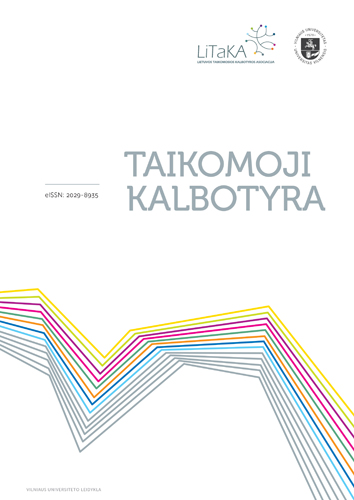Lietuvių kalbos išsaugojimas emigrantų šeimoje: JAV atvejis
Lithuanian language maintenance in the emigrant family: the case of US
Author(s): Kristina Jakaitė-BulbukienėSubject(s): Applied Linguistics, Sociolinguistics, Migration Studies
Published by: Vilniaus Universiteto Leidykla
Keywords: family language policy and management; emigration; language maintenance strategies; consciousness; authoritarian model of family language management;
Summary/Abstract: One of today’s most painful problems of the society of Lithuania is massive emigration, which is often heated debated in different circles of the society. One of the aspects of the problem is concerned with the Lithuanian language: whether or not the language should be maintained. Lithuanian emigrants often complain that their children are not willing to talk with their parents in their native/heritage language. On the other hand, there are many examples when after spending long years in emigration, people are still fluent in their native tongue and/or maintain strong national identity. Thus the paper aims at exploring strategies of how Lithuanian emigrant families maintain the Lithuanian language.The paper analyses the US subset of the data collected during the research project “The Language of Emigrants”. The subset consists of three generations of Lithuanian emigrants. The investigation is based on a quantitative survey (n = 438) and qualitative in-depth semi-standardized interviews (n=15) from the USA (most of them recorded in May 2012 in Los Angeles, CA). The results of the research suggest that successful maintenance of the Lithuanian language has been due to a conscious decision by the members of the family to keep the language as a language of communication in the family and to pass it over to the younger generation. Emotional ties with the native/heritage language are also very important. The investigation has identified the prevalence of the authoritarian management model of language maintenance in those families.No less important is the social environment outside the children’s home domain. Formal education and active involvement in the Lithuanian community are considered significant factors contributing to learning/maintaining the Lithuanian language. Regular trips to Lithuania also help strengthen the sense of ethnic identity.
Journal: Taikomoji kalbotyra
- Issue Year: 2014
- Issue No: 5
- Page Range: 1-30
- Page Count: 30
- Language: Lithuanian

